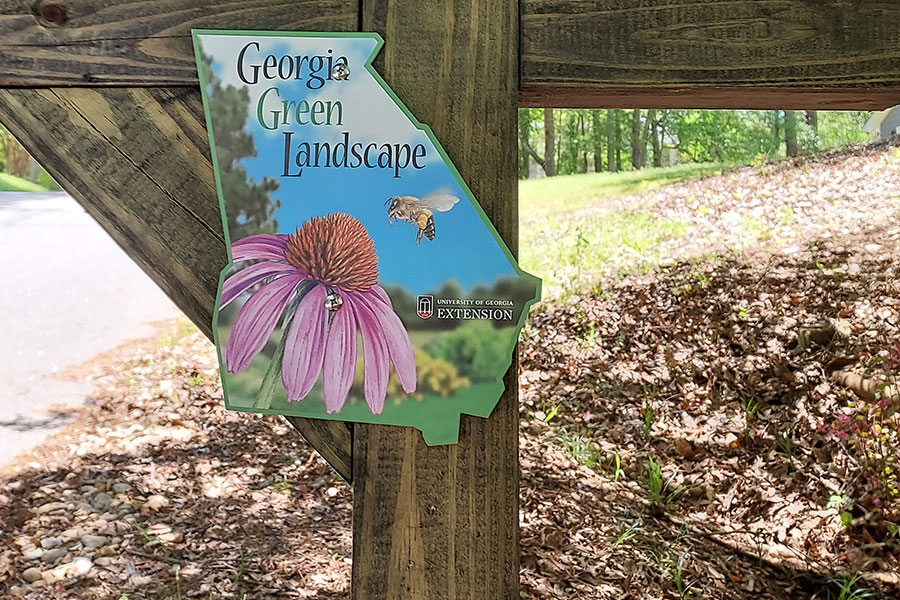Lead can be poisonous, and many Americans live in homes contaminated by lead-based paint on their walls, windows and doors.
According to the HUD National Survey of Lead and Allergens in Housing, half of the homes in Georgia were built before 1978, when lead-based paint was commonly used on the interiors and exteriors of buildings. The highest concentrations of lead-based paint are found in the oldest homes.
“A tiny amount of lead can be extremely harmful,” said Pamela Turner, a housing specialist with University of Georgia Cooperative Extension. “The amount of lead dust that could fill a sugar packet, about one gram, can contaminate 16 average-size homes.”
Exposure to lead can cause speech, language and behavior problems in children. It can also cause decreased intelligence, attention deficit disorder and learning disabilities, according to the Environmental Protection Agency.
“Lead poisoning damages the brain and central nervous system, which can lead to learning disabilities, seizures and even death,” Turner said. “Children are at greatest risk of exposure because they are still developing and are more likely to touch things and then put their contaminated hands into their mouth.”
Adults can experience high blood pressure, fertility problems, digestive problems and nerve disorders, among other things.
Lead is a soft, highly toxic metal. It occurs naturally and is spread through the environment by human activities. For many years it was used in products found in and around homes, including paint and gasoline. Lead is added to paints for color and durability.
Using lead in house paint, children’s products, dishes and cookware was banned in the United States in 1978. Many other countries banned lead paints years earlier, but some did not. Lead may still be found on imported toys, plastics, pottery or candy.
“While there are many sources of lead, the primary source of lead poisoning is still lead-based paint,” Turner said.
There are no visible symptoms of lead poisoning, so it is important to have children tested for lead poisoning by a healthcare provider if exposure is suspected.
The EPA’s Renovation, Repair and Painting rule requires the use of lead-safe work practices during renovations in pre-1978 homes or child-occupied facilities. Effective April 22, 2010, renovators must be certified and follow specific work practices to prevent lead contamination.
Any renovator found without a certificate or not operating in compliance with safe practices can be fined $37,500 per violation per day by the EPA, according to federal law.
In Georgia, the Environmental Protection Division hopes to gain approval from the EPA to regulate the federal program by December 2010. EPD’s priority will be to ensure all contractors working in pre-1978 homes or child-occupied facilities are trained and work for a certified renovation firm, said Mindy Crean, EPD lead-based paint program manager.
“By statute, we can fine renovators for failing to follow the rules,” Crean said. “We would rather have renovators look to the EPD for guidance so renovations are performed safely.”
Unsafe renovation work that disturbs greater than six square feet of interior or 20 square feet of exterior lead-based paint can contaminate workers and their families, as well as the occupants and neighbors.
Demolition activities create debris and lead dust that can be inhaled or swallowed by workers or carried home on clothing or shoes. Workers who scrape or sand walls by hand can ingest lead dust, Crean said.
Renovators working in homes, apartments, child-care facilities or schools built before 1978 must be certified to work with lead-based paint. Contractors, window and door installers, carpenters, residential property managers, painters, plumbers, electricians, drywall installers, HVAC technicians and any other person working in these facilities must complete an 8-hour renovator training course.
UGA Extension has partnered with Greenville Tech to provide trainings across the state. Trainings will be held in Macon on Aug. 10, in Savannah Aug. 31 and in Brunswick Sept. 29. To register or for more information, visit www.fcs.uga.edu/ext/housing/training/lead_training.php.
For more information on product recalls due to lead, visit www.cpsc.gov or call 800-638-2772.








